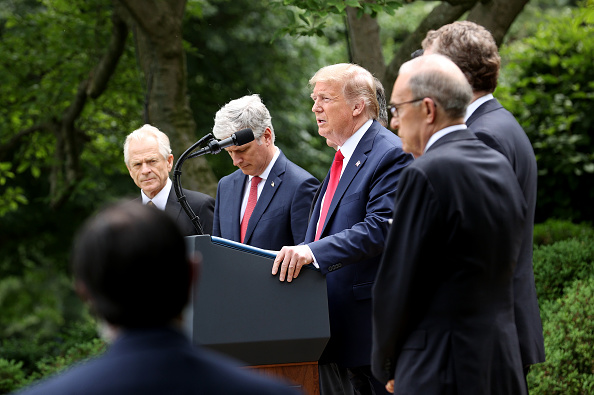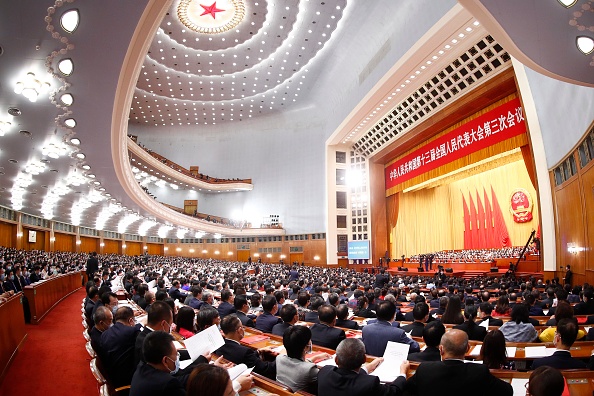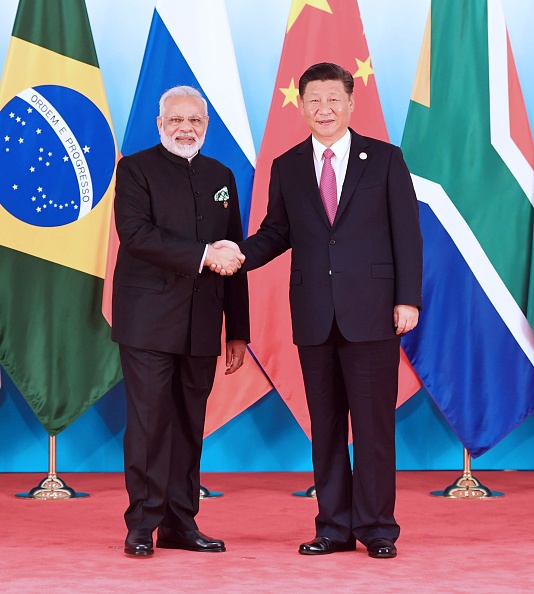
 Questions of Autonomy
Questions of AutonomyPresident Trump announced Friday that the United States will be revoking Hong Kong's special status as an autonomous entity, accusing China of eroding the autonomy of Hong Kong after Beijing attempted to push through a new security law for the Asian financial hub. While Trump did not provide details about precisely which steps would be taken or in what order, the U.S. will move to end Hong Kong's special privileges, which include international extradition, customs, trade, and visa exchange, effectively treating Hong Kong the same as a mainland Chinese city. During the President's ten-minute press conference— in which he took no questions from the press— Trump also announced that the U.S. would be "terminating" its relationship with the World Health Organization and redirecting it's $450 million WHO funding to other international health groups.
Trump's sweeping decision comes after the National People's Congress on Thursday nearly unanimously approved a resolution to draft a security law intended to suppress subversion, secession, terrorism, and any other acts that threaten "national security." The move, which is expected to go into effect in September, has drawn international condemnation and concern that it may lead to a crackdown on activist groups, as well as freedom of speech and assembly. Expressing "deep concern" over the bill, Britain's Foreign and Home Office Secretaries have said that three million Hong Kong residents may be able to gain British citizenship if the law passes, stating that "the new security law will undermine the existing legal commitments to protect the rights of Hong Kong people." These concerns have been dismissed by Hong Kong's Chief Executive Carrie Lam, as well as by China's Foreign Minister Wang Yi, who said the law "does not affect the rights and freedoms enjoyed by Hong Kong residents. There is no need for concern."
A statement by an official from the Hong Kong government said, "In the Hong Kong-U.S. relationship, any sanctions are a double-edged sword that will not only harm the interests of Hong Kong but also significantly those of the U.S."
 Economy on the Mend
Economy on the MendChina's annual "Two Meetings" closed this week, with discussions largely focused on the coronavirus response, economic stimulus and unemployment, and deteriorating U.S.-China relations. China dropped its hard growth target for the first time in decades, revealing how the coronavirus continues to slow the economy. For more on China's economic recovery, read the latest article from China-US Focus contributor, Joel A Gallo, CEO of Columbia China League Business Advisory.
Noting rising unemployment resulting from the coronavirus, Premier Li Keqiang signaled that employment will be a main priority for the government, setting a target unemployment rate of 6% in urban areas (although this rate omits a large portion of China's undocumented workforce). Li emphasized business opportunities for foreign companies and stressed that Beijing and Washington should continue to find ways to work together, despite the growing chasm in the relationship.
For the first time since authorities began reporting data in January, China also reported no new coronavirus infections, with the most recent official death toll sitting at 4,634. With this in consideration, China will begin to allow international flight travel, with charter flights from eight countries to be opened.
 Borderline Problematic
Borderline ProblematicBorder tensions between China and India have escalated, as a dispute in the Himalayan region intensified after China reportedly moved thousands of troops into disputed territory and both sides accused the other of trespassing over the disputed border.
President Trump offered to mediate the dispute, tweeting that "the United States is ready, willing and able to mediate or arbitrate their now raging border dispute." India denies having received a phone call from the U.S. President. This escalation follows a seemingly amiable China-India bilateral summit meeting in southern India last year, which achieved little in ironing out contentious issues between the two countries.
Prepared by China-US Focus editorial teams in Hong Kong and New York, this weekly newsletter offers you snap shots of latest trends and developments emerging from China every week, while adding a dose of historical perspective.
- 2020-05-22 Pandemic Decisions
- 2020-05-16 Fractures and Fault Lines
- 2020-05-09 Attacks and Counterattacks
- 2020-05-02 Retaliatory Actions
- 2020-04-24 Sinking Perceptions
- 2020-04-18 Pandemic World
- 2020-04-11 The Long Road Back to Normalcy
- 2020-04-03 Shifting Gears
- 2020-03-28 Cooperation or Confrontation
- 2020-03-20 World in Turmoil
- 2020-03-13 Global Emergency
- 2020-03-06 Global Strains
- 2020-02-28 Coronavirus Gone Global
- 2020-02-22 The Virus Continues
- 2020-02-15 Asserting Control
- 2020-02-08 A Novel Outbreak
- 2020-01-31 Global Health Emergency Declared
- 2020-01-24 Celebrations Grounded
- 2020-01-17 Signed, Sealed, Delivered
- 2020-01-10 Ink the Deal
